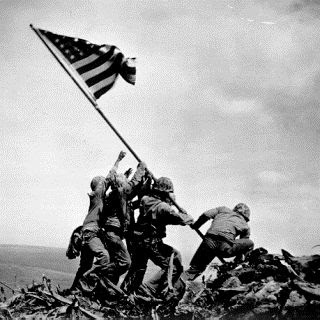
In 1829, the liberator, Simon Bolivar, accurately observed: “The United States seems to have been destined by Providence to plague the Americas with misery in the name of liberty.”
Later, José Marti would endorse that prediction, saying, “Since the gaining of independence in the Americas until now, there has never been a situation requiring greater sensitivity, demanding more vigilance, or requiring a more detailed and transparent examination than the conference hosted by the powerful U.S. The conference imposed unmarketable products, in an endeavor to expand its control in America over weaker American nations.”
Marti’s statement was written in December 1889, and referred to the First International Conference of American States – held in Washington D.C and sponsored by the U.S. – which ignored its historical predecessor, the Congress of Panama, held on June 22, 1826, convened by Bolivar in order to ensure the absolute freedom of our America.
Since then, invasions, secession of territories, assassinations of national leaders, coup d’états, blockades and economic dependence have validated Bolivar’s warnings. Like Bolivar, many other individuals equally concerned about the future and destiny of the Latin American population have warned against U.S. neocolonial and imperialist hunger, an appetite maintained with consistency, especially as the White House administration enthusiastically contemplates a Project for a New (North) American Century. The purpose for the new project is to openly “redesign the order of international security, in accordance with North American principles and interests,” imposing through any means – commercial or military – the unquestionable, worldwide hegemony of the U.S.
In this way, natural rights or manifest destiny acquires new meaning when applied to the U.S. The implication is that the U.S. is allowed to ignore any consideration presented by multilateral organizations or international law that would interfere with U.S. interests and geo-strategic alignment. In past decades, this has become apparent through attacks and military intervention in Panama, Haiti, Iraq and Afghanistan, as well as through threats to other rebellious nations and governments that fail to accept the imperial guardianship. Washington has reformulated its military doctrine, adopting preventive war strategies implemented by the racist State of Israel in the Middle East; moreover, it has established the necessity of extending its territorial dominion through the establishment of military posts and military plans, especially throughout our America.
According to Uruguayan journalist, Raúl Zibachi, in 2005, “The U.S. Southern Command has become the main middleman for Latin American governments and the articulator of foreign policy and U.S. defense in the region. The immediate military presence in the region has grown since the deactivation of Howard [Air Force] Base in Panama in 1999. The Southern Command is now responsible for the Guantanamo [Naval] Base (Cuba), Fort Buchanan and Roosevelt Roads (Puerto Rico), Soto Cano (Honduras) and Compalapa (El Salvador), and for the air bases of Manta (Ecuador), Queen Beatrice (Aruba) and Hato Rey (Curacao).
“In addition, the U.S. operates a network of 17 land military radar outposts: three fixed outposts in Peru, four in Colombia, and the rest are mobile and secret in Andean and Caribbean countries. Colombia ranks fourth, globally, as a recipient of American military aid, after Israel, Egypt and Iraq; and the embassy in Bogota is the second largest in the world, following that of Iraq.”
Now, the U.S. will add military bases in Colombia, under the agreement of the presidents, Obama and Uribe, in what would signify an expansion of a vast war machine, under U.S. command, scattered in the heart of the entire American continent. The substantive objective goes beyond a simple fight against drug trafficking, more likely aiming for containment of radical nationalism in our countries – always identified by the Department of State, the Pentagon and CIA, and other American official organisms as the greatest threat confronting their country, following the Soviet Union’s implosion – especially when the U.S. requires direct control over energy sources, biodiversity and fresh water in our America.
All signs point to an intensification of low-intensity conflict, in which Yankee imperialism will ultimately prevail in the region against popular revolutionary movements and nationalistic governments with progressive tendencies. This will become possible as Colombia is converted into a spearhead for the imperialistic aggressions, similar to the role of Israel in the Middle East, in order to please vast, transnational U.S. corporations and their Latin American acolytes. All with the sole purpose to ensure U.S. hegemony, as has been the goal since the Monroe Doctrine.

Leave a Reply
You must be logged in to post a comment.